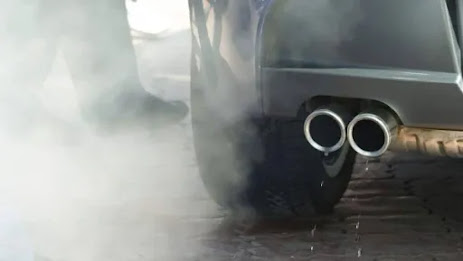Quiet and Eco-Friendly: Understanding Electric Vehicle Exemptions from Smog Checks
Electric vehicles (EVs) represent a significant shift in automotive technology, offering a cleaner alternative to traditional gasoline-powered cars. Alongside their technological advancements, electric vehicles must also navigate through regulatory requirements that were originally established for a bygone automotive era. Among these is the smog check, a regulatory step familiar to owners of vehicles with internal combustion engines. Yet, the interaction between electric vehicles and smog checks is complex, reflecting a modern perspective on environmental responsibility.
The Development of Smog Checks
Introduced to combat air pollution concerns, smog checks aim to verify that vehicles do not exceed certain levels of harmful emissions. Gasoline and diesel vehicles, which operate on internal combustion engines, emit pollutants like nitrogen oxides, carbon monoxide, and particulate matter, contributing significantly to air pollution. The smog check process for these vehicles measures the emission of such pollutants, ensuring they fall within acceptable limits.
Electric Vehicles: A Distinct Approach
Electric vehicles, powered by electric motors and batteries, produce no tailpipe emissions, setting them apart from their gasoline-powered counterparts. This leads to the question: Are smog checks necessary for electric cars? The answer is generally no. Electric vehicles bypass the emissions-focused smog checks due to their lack of tailpipe pollutants, highlighting their environmental advantages and their role in mitigating air pollution and addressing climate change.
Adjusting Regulations for Electric Vehicles
Although exempt from smog checks, electric vehicles are subject to other forms of regulatory scrutiny. Regulatory bodies are updating their frameworks to address the unique aspects of electric vehicles, including the production and disposal of batteries, energy efficiency, and the origins of the electricity used for charging. As the electric vehicle sector expands, it is anticipated that regulations will continue to adapt, ensuring that the environmental impacts of electric vehicles are minimized throughout their entire lifecycle.
The Evolution of Vehicle Regulations
Electric vehicles' exemption from smog checks marks a positive stride towards reducing vehicle-induced pollution. However, this development also emphasizes the importance of a comprehensive approach to environmental regulations. With the auto industry moving towards electrification, regulatory efforts are broadening to assess not just vehicle emissions, but also the wider environmental implications of their manufacture, operation, and disposal.


.jpg)
.jpg)
Comments
Post a Comment